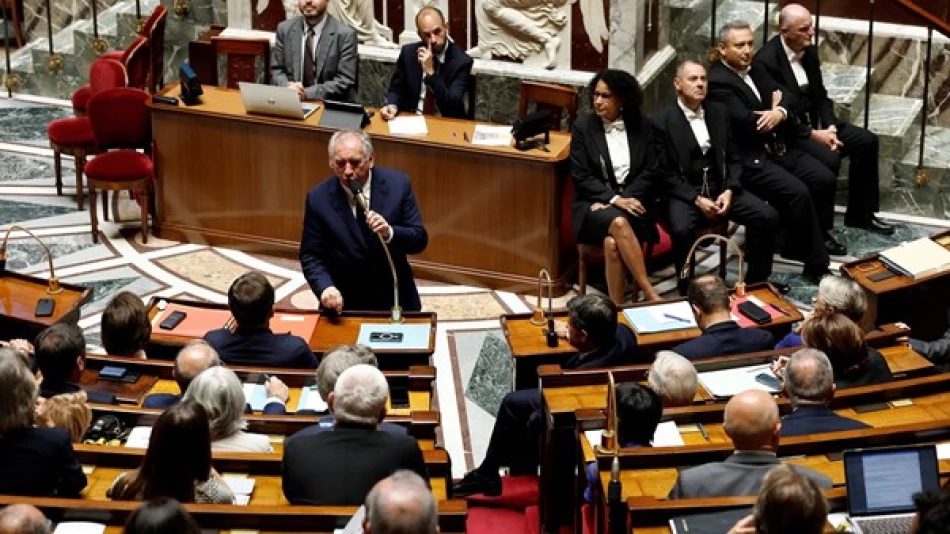
Élysée Palace Responds to French Parliament's No-Confidence Vote Against Government
Macron's Government Falls as French Parliament Rejects Debt-Cutting Plans
French President Emmanuel Macron faces his second major political crisis in months after lawmakers delivered a crushing no-confidence vote against Prime Minister François Bayrou's government on Monday. The dramatic collapse, triggered by Bayrou's aggressive debt reduction proposals, leaves France without a functioning government and highlights the country's deepening fiscal challenges amid growing political fragmentation.
A Swift Political Downfall
The Élysée Palace announced that Macron will meet with Bayrou on Tuesday to formally accept his government's resignation, with plans to name a new prime minister within days. The no-confidence motion passed decisively, with 364 lawmakers voting against the government while only 194 supported Bayrou's administration.
National Assembly President Yaël Braun-Pivet invoked Article 50 of the French Constitution, formally requiring the prime minister to submit his government's resignation. Bayrou's tenure lasted barely nine months, making him one of the shortest-serving prime ministers in modern French history.
Debt Crisis at the Heart of Political Turmoil
Bayrou's downfall stems directly from his ambitious plans to tackle France's ballooning public debt, which has become a pressing concern for European Union officials and international markets. His proposed austerity measures, likely including spending cuts and potential tax increases, proved too controversial for a fractured parliament where Macron's centrist alliance lacks a clear majority.
France's debt-to-GDP ratio has steadily climbed beyond EU fiscal rules, putting pressure on the government to demonstrate fiscal responsibility. However, the political reality of implementing painful economic reforms has proven nearly impossible in the current parliamentary landscape.
A Pattern of Instability
This marks the second government collapse under Macron in recent months, revealing the structural challenges facing French governance. The president's centrist coalition has struggled to build stable coalitions since losing its parliamentary majority, creating a revolving door of prime ministers unable to implement coherent policy agendas.
The instability contrasts sharply with other major European economies like Germany and Italy, where coalition governments have managed to maintain longer tenures despite their own political challenges. France's unique semi-presidential system, combined with increased political polarization, has created a particularly volatile governing environment.
Market and Economic Implications
The government's collapse raises immediate concerns about France's ability to address its fiscal challenges and maintain credibility with EU partners. Bond markets and currency traders will likely monitor Macron's next appointment closely, particularly whether the new prime minister will pursue similar debt reduction strategies or abandon fiscal consolidation efforts.
The political uncertainty also complicates France's role in broader European economic policy, potentially weakening its influence in EU fiscal discussions at a time when the bloc faces multiple economic pressures including inflation concerns and geopolitical tensions.
What Comes Next
Macron's choice for the next prime minister will signal his strategy for the remainder of his presidential term. He faces a difficult balancing act: selecting someone capable of building parliamentary coalitions while still addressing France's urgent fiscal needs. The president may opt for a more consensus-oriented figure or double down on technocratic leadership focused on economic reforms.
The recurring government instability suggests deeper structural problems in French politics that extend beyond individual personalities or policies, pointing to a political system struggling to adapt to new electoral dynamics and economic realities.
Most Viewed News

 Layla Al Mansoori
Layla Al Mansoori






